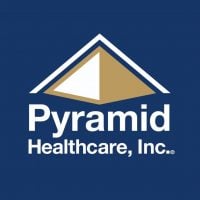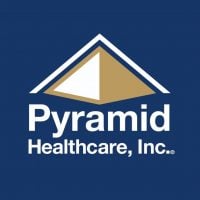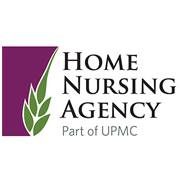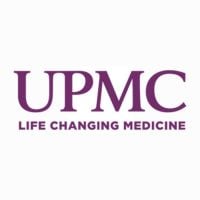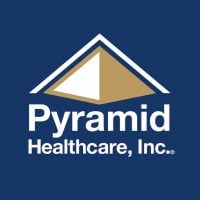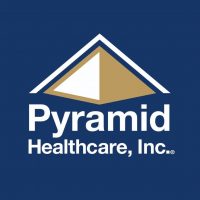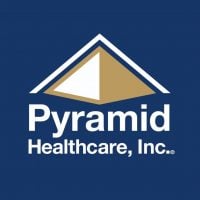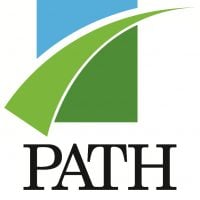White Deer Run
Drug Rehab Center in Altoona, Pennsylvania
White Deer Run in Altoona, PA is an accredited CARF addiction treatment facility that offers a range of therapies and experienced, dedicated staff in a peaceful setting to aid in patient recovery.
Multiple patients have reported White Deer Run as permanently closed.
Research other rehabs in Altoona, Pennsylvania, or get help finding an open facility.
About White Deer Run in Pennsylvania
White Deer Run, a private rehab facility nestled in Altoona, Pennsylvania, has been providing comprehensive addiction treatment services since its establishment. With a primary focus on addressing alcoholism, drug addiction, mental health issues, and opioid dependency, White Deer Run offers a beacon of hope for individuals seeking recovery.
• CARF accreditation ensures the highest standards of care and treatment effectiveness
• Comprehensive drug rehab program with personalized treatment plans tailored to individual needs
• Intensive outpatient programs offer flexibility while providing a higher level of support
• Outpatient services provide ongoing therapy and assistance during the transition back to daily life
White Deer Run holds the prestigious CARF certification, demonstrating their commitment to delivering top-quality care and maintaining the highest standards of effectiveness in addiction treatment.
At White Deer Run, individuals battling various addictions, including alcohol, drugs, and opioids, can find solace and expert guidance. The facility offers a range of treatment options, including drug rehab, intensive outpatient programs, and outpatient services, catering to the unique needs of each patient.
Through their comprehensive approach, White Deer Run aims to empower individuals on their path to recovery, providing them with the tools and support necessary to overcome addiction and maintain long-term sobriety. With a combination of personalized treatment plans, evidence-based therapies, and a compassionate team of professionals, White Deer Run stands as a pillar of hope for those seeking to reclaim their lives from the grip of addiction.
Genders
Ages
Modality
Additional
Accreditations

CARF
The Commission on Accreditation of Rehabilitation Facilities (CARF) is a non-profit organization that specifically accredits rehab organizations. Founded in 1966, CARF's, mission is to help service providers like rehab facilities maintain high standards of care.
Conditions and Issues Treated
With so many people addicted to opioids, we need to help those who want to quit. The cycle begins when opioid addicts take opioids for a painful injury. When someone starts taking their medication differently or in excess, it means they’re addicted and at risk of overdosing.
In , detoxing from these types of treatments is the most effective way to beat this. Most facilities begin with medical assistance and then provide counseling services; rehabilitation follows after successful treatment.
Levels of Care Offered
This center offers a variety of custom treatment tailored to individual recovery. Currently available are Drug Rehab, Intensive Outpatient, Outpatient, with additional therapies available as listed below.
An intensive outpatient program (IOP) is effective for drug rehab, but it can take six months to several years to complete. It’s the most popular type of drug rehab program in the United States. One example of a successful IOP success story is actor and comedian Chris Rock, sober since 1990.
An IOP allows participants to spend nights at home while attending meetings throughout the day. It’s a good way for drug addicts to make a recovery plan in an outpatient setting while still supporting their loved ones.
Alcohol or drug addiction, or co-occurring disorders, are treated in an outpatient program. The patient must attend therapy and other programs at the facility but can return home each night.
Outpatient treatment allows recovering addicts to live at home while receiving addiction treatment. Outpatients can attend group sessions for a few hours per week. Outpatients may also continue to work full time and study/attend school without interruption if they choose.
Therapies & Programs
Different people react differently to various treatment options. Some drug rehabilitation centers offer individualized treatment that caters to the specific needs of a drug addict. The best treatment option varies on an individual depending on the type of drug abused, life history, medical condition of the person, social circumstances, and the environment they live in now.
When a person enters drug rehab, they usually have anti-drug associations such as withdrawal symptoms, stress, cravings, etc. The first step of drug rehab is to detoxify the body from any residual substances in it. Drug rehabilitation centers usually employ trained medical professionals to help in this process. Usually, the initial detoxification lasts for five days, where the person is monitored under close supervision.
Family therapy sessions typically involve the addict and their family members. During these sessions, a therapist will work with everyone involved to help them understand addiction and find healthy ways of coping without substance abuse.
Some addicts might feel embarrassed about their substance abuse problems. By encouraging family members to attend these sessions, therapists can show addicts that they’re not alone in dealing with addiction. Therapists can also work with family members to help them understand addiction and learn how to offer support and encouragement to their loved one as they deal with substance abuse issues.
Attending group therapy at White Deer Run in , is a useful way for those seeking sobriety to realize they aren’t the only one going through it.
This is when a group of people on different recovery phases get together and talk about what they’re going through, their triggers, successes, and failures. This can include alternative types of therapies too! Group therapy may occur on an outpatient or inpatient basis with groups that have no pre-existing relationships outside the session, unlike support groups where everyone already knows each other beforehand.
Life Skills Services offered at Drug Treatment Centers assists addicts in their recovery by teaching them healthy coping mechanisms that will aid them in becoming sober, focussing on helping people enter into, and maintaining long-term sobriety. Drug Treatment Centers provide Life Skills Services at varying levels of intensity, specific to the needs and requirements of each patient.
Life Skills Services offered at Drug Treatment Centers assists addicts in their recovery by teaching them healthy coping mechanisms that will aid them in becoming sober, focussing on helping people enter into, and maintaining long-term sobriety. White Deer Run in Altoona, Pennsylvania provide Life Skills Services at varying levels of intensity, specific to the needs and requirements of each patient.The benefits of Life Skills Services offered at Drug Treatment Centers:
- Restores hope and empowerment — Helps addicts believe that recovery is possible and instills a new confidence in their ability to achieve a positive, drug-free future
- Enhances family involvement — Encourages families to get involved in the recovery process and supports their understanding and encouragement of healthy behavior.
- Increases patient’s compliance — Helps patients take responsibility for and ownership of their recovery and encourages continued progress
- Reduces relapse rates — Encourages long-term abstinence and emphasizes the importance of establishing sober support systems.
Good nutrition can be difficult for people recovering from addiction because they may not feel like eating while they are experiencing the physical and emotional side effects of detoxing.
Nutrition therapy can help addicts in the following ways:
- Helps individuals to understand which foods promote good health and support recovery that will assist them during detox
- Provides guidance and education about how to maintain a nutritious diet so they can stay healthy during recovery
- Improves their overall health and well-being, which can reduce the severity of substance withdrawal symptoms.
Nicotine replacement therapy is a popular method of treatment that helps individuals overcome their addiction to cigarettes by providing them with safer alternatives. Nicotine replacement options can include:
- Inhalers
- Gum
- Patches
These treatments are often used in combination with other therapies, such as cognitive behavioral therapy or motivational interviewing, to help individuals more easily transition into a smoking-free lifestyle.
Patient Experience
Experiential Therapy at White Deer Run
Experiential therapy is a type of therapeutic approach that focuses on having patients work through problems, issues, or emotions by engaging directly in some real experience. It occurs face-to-face with a therapist who helps these people to explore their feelings first hand. The hope is that when this happens, the patient will feel driven to turn away from their destructive behavior and instead take up positive behaviors or coping mechanisms. Direct experience methods, role play, psychodrama, interpersonal and social learning are a few different forms of experiential therapy.
Additional Details
Specifics, location, and helpful extra information.
Altoona, Pennsylvania 16602 Phone Number(814) 943-1699 Meta DetailsUpdated April 15, 2024
Staff Verified
White Deer Run Patient Reviews
There are no reviews yet. Be the first one to write one.
Altoona, Pennsylvania Addiction Information
Pennsylvania ranks 14th in the nation for drug-related deaths. More than 10% of all deaths in Pennsylvania have been related to drugs and alcohol. 30% of Pennsylvania youth reportedly drink alcohol monthly, with more than 20,000 teenagers having an alcohol problem. The rate of opioid misuse in Pennsylvania is double the national average.
Prescription drug abuse is on the rise in Altoona, Pennsylvania. About 1,800 young people aged 12-17 were abusing pain relievers in 2019. The most common drugs abused or misused are opioids, as well as heroin and cocaine. 4,000 people struggle with a drug addiction in the city alone. The most common type of treatment is detoxification, which helps someone to rid their body of all the toxins built up from drug abuse.
Treatment in Nearby Cities
- Willow Grove, PA (174.3 mi.)
- Mount Pocono, PA (163.8 mi.)
- Bala-Cynwyd, PA (170.0 mi.)
- Columbia, PA (104.6 mi.)
- Westfield, PA (107.2 mi.)
Centers near White Deer Run
The facility name, logo and brand are the property and registered trademarks of White Deer Run, and are being used for identification and informational purposes only. Use of these names, logos and brands shall not imply endorsement. RehabNow.org is not affiliated with or sponsored by White Deer Run.

